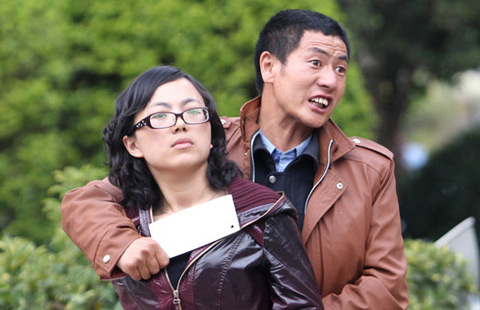Enemies share eternity together
Updated: 2014-04-14 08:20
By Dong Fangyu (China Daily)
|
|||||||||||
|
The New Fourth Army In October 1937, the Communist Party of China reached an agreement with the Kuomintang whereby Red Army soldiers and communist guerrillas active in the eight provinces of southern China would join the expanded New Fourth Army of National Revolutionary Army, a unit that symbolized the united CPC-KMT resistance to the Japanese. Two veteran communists led the unit: Ye Ting as commander and Xiang Ying as his deputy. Under their leadership, the New Fourth Army developed into one of the most effective opponents of the Japanese troops. In March 1938, the army opened up anti-Japanese bases in Jiangsu and the surrounding provinces, engaging in guerrilla warfare to the north and south of the Yangtze River. Later, the unit became a leading force in the fight against Japanese strongholds in central China. - Dong Fangyu |
"What can I contribute as an ordinary Chinese? I try to encourage everyone around me not to buy Japanese products. You think that's senseless? No, it's the most rational way of showing my anger at Japan's distortion of history," he said. "Most of the time, Chinese people just blame Japan on online forums, but they don't put their words into action."
Sun Xiaohua, the daughter of Sun Cunyu, who commanded a company at the battle, said, "As a family member, I'm very unhappy to see my father buried in the same cemetery as his enemies."
"But at the same time, I see the way the locals dealt with the problem as a humanitarian gesture," said the 60-year-old retired accountant.
Although Sun's father survived the battle, the injuries he sustained troubled him for the rest of his life. As he lay dying in Beijing in 1985, the old soldier made a final request and asked to be buried alongside his comrades in Zhujiagang. His grave stands apart from those of the fallen.
"I have no comment about the potential resurgence of imperialism in Japan. It's so impudent as to defy reason. It's beyond words. I hope the descendants of the Japanese soldiers and younger Japanese people will come to Zhujiagang, to see the grave of their ancestors in person," Sun said.
"I'm sure they would feel a sense of shame if they stood in front of the grave, on the land ravaged by their forefathers."
Xu Changliang, Yu Lihui and Liu Wenlong contributed to this story.
Contact the author at dongfangyu@chinadaily.com.cn
Related Stories
Remains of Chinese soldiers finally home 2014-03-29 08:17
ROK to return remains of Chinese soldiers 2014-03-17 14:52
The War of Resistance against Japanese Aggression in brief 2014-02-25 18:21
Major conference discusses War of Resistance against Japanese Aggression 2013-11-08 15:50
Today's Top News
After Crimea won, Putin tries not to lose Ukraine
Foreign investment law to be revised
Recorder may have gone silent
Enemies share eternity together
Response to tainted water raises concerns
Anti-graft rules made by local governments
Crucial Snowden questions loom large over Pulitzers
US vice-president to visit Ukraine
Hot Topics
Lunar probe , China growth forecasts, Emission rules get tougher, China seen through 'colored lens', International board,
Editor's Picks

|

|

|

|

|

|





